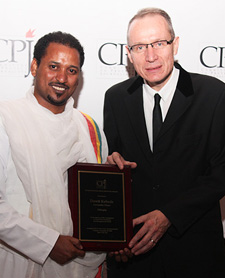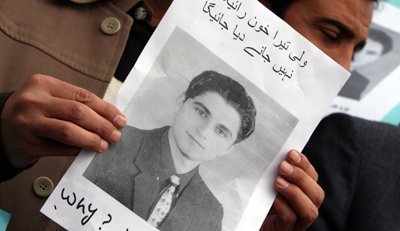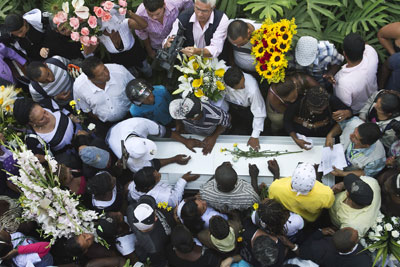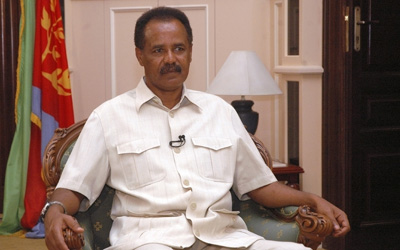
Judge confirms charges against Ethiopian dissident blogger
New York, January 25, 2012–Jailed Ethiopian dissident blogger Eskinder Nega will stand trial in March for all of the terrorism accusations initially advanced by prosecutors, a federal high court judge ruled yesterday, local sources said. If convicted on all charges, he could face the death penalty.

Under pressure at home, Chinese writer chooses exile
New York, January 13, 2012–The decision of prominent Chinese writer Yu Jie to seek exile in the United States this week is an indication of the intensifying hardships that face dissidents who criticize Communist Party rule, the Committee to Protect Journalists said today.
In Nairobi, plans to improve aid to exiled journalists
Kassahun Yilma left Ethiopia quickly in December 2009. He didn’t have time to save money for the journey, choose a place to go, arrange housing or a job. He left his wife, his mother, his house and all his friends behind. Yilma didn’t know what lay ahead. He only knew that if he stayed, he…
“At heart he is still a journalist. But it was his journalism that endangered his life.”
In 2008 Namal Perera was dragged from a car and savagely beaten with metal rods by paramilitary forces in Colombo, Sri Lanka. The attack was so severe that he was forced to flee the country for fear of his life. With few options available to him, he CPJ helped to secure a special rescue fellowship to…
From safety of New York, reporting on distant home
Nigerian journalist and ex-pat Omoyele Sowore is the focus of this New York Times Piece on exiled journalists in New York City. Since 2001 CPJ cites 649 journalists who have been driven into exile, 592 or which still have not returned to their home country. Despite some being thousands of miles from home, the rapid…

Dawit Kebede joins Ethiopia’s exiled journalists
New York, November 21, 2011–Dawit Kebede, managing editor of Awramba Times, one of Ethiopia’s two remaining independent Amharic-language newspapers offering critical analysis of local politics, announced today that he was forced to leave the country after he received a tip last week about alleged government plans to re-imprison him. Kebede also said that the paper…

From Karachi to New York: A tale of fear, loss, and hope
On Monday, a well-known Pakistani journalist came to our office in New York. We had been messaging and texting for a few weeks, so I knew what to expect. Despite the harsh reality check that CPJ’s Sheryl Mendez and I offered during our 90-minute meeting, he is going ahead with the process of applying for…

Colombian journalists: between threats, exile
To be a journalist in Colombia, in a city like Medellín, is not easy — even less so if you cover issues related to narcotrafficking. Despite efforts by the authorities to control outbreaks of violence linked to drug trafficking, especially in the city’s poorest neighborhoods, the situation isn’t improving. According to the prosecutor’s office, Medellín…

Eritrea: Let’s lift the shroud of 10 years of misery
Since Zaid Tewelde’s husband, an Eritrean freedom fighter turned playwright and journalist, was arrested in September 2001, she has spent each passing day coping with the burning questions of her two young sons, age 9 and 10, “Where is my dad? When are we going to see him?” And she is not alone. Like Zaid, the…